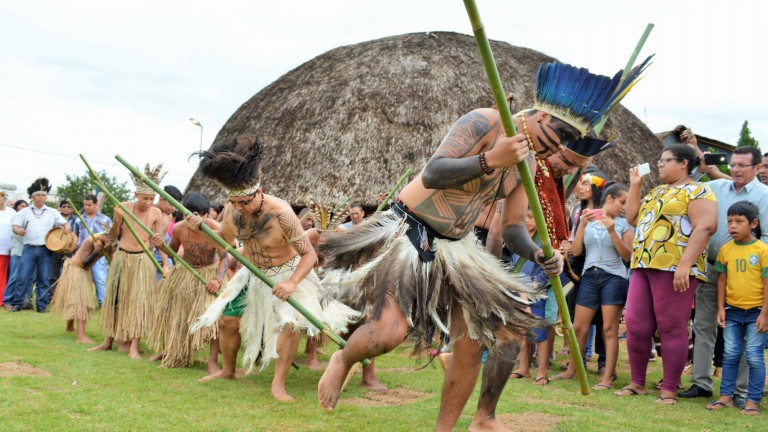ADVERTS
The culture of the indigenous people
We already know that the Indians were the first inhabitants of Brazil, since our first school years. The indigenous people are actually made up of several ethnicities with different customs, habits and languages, among which we can mention some such as: The Yanomami speak four languages, their huts are built of fitted rafters, tied with vines and covered with straw. They are also semi-nomadic with customs of migrating from time to time. They are also hunters and believe in animal spirits that, when killed, become their protectors and friends.

Indigenous culture – Carajás
Já os Carajás falam somente a língua Macro-Je. Geralmente são duas linguás Carajás, Javaes e Xambioás. Acreditam também que o homem se transforma em animais. Suas moradias são próximas ao rio Araguaia, eles acreditam que sua criação, rituais de passagem, alimento e alegria são dados por ele. Sua subsistência se da através do cultivo de milho, mandioca, batata, banana, melancia, feijão, amendoim entre outros alimentos. Amantes da pintura corporal eles adoram pintar desenhos pelo corpo como uma forma de vaidade. Essa tribo também e muito organizada pois as tarefas são muito bem divididas como os homens ficam responsáveis pela abertura de rocas, construção de casas, pescas e outras atividades, as mulheres ficam com o trabalho de educar os filhos, e cuidar dos afazeres domésticos, pintura e ornamentação das crianças.
ADVERTS
Indigenous culture – Guaranis
The Guaranis are another well-known tribe in Brazil, they carry out beautiful artisanal work in ceramics. These people actually have their own language, Guarani. Portuguese is only taught to children over six years of age. Immigrants and farmers believe that death is only a passage to the land without evil, where those who are gone leave for this place to protect those who remain on Earth.
Indigenous culture – Tupis
The Tupis are also well known and their chief leader is the Pajé. He acts as a sage, healer, priest, among other activities within the tribe. The Tupis use music to ensure the preservation of their traditions.
There are around 225 indigenous communities distributed throughout the Brazilian territory, which corresponds to 0.25% of the country's population.
